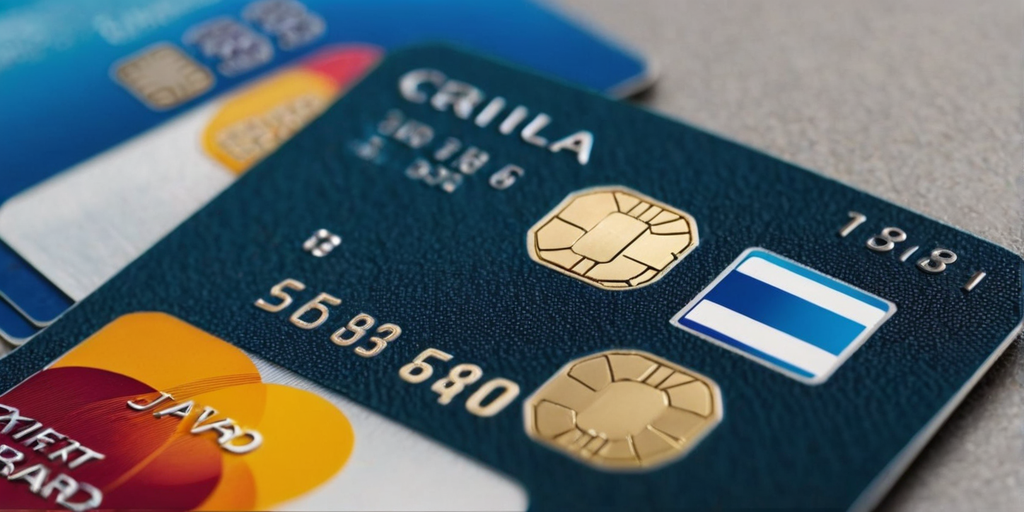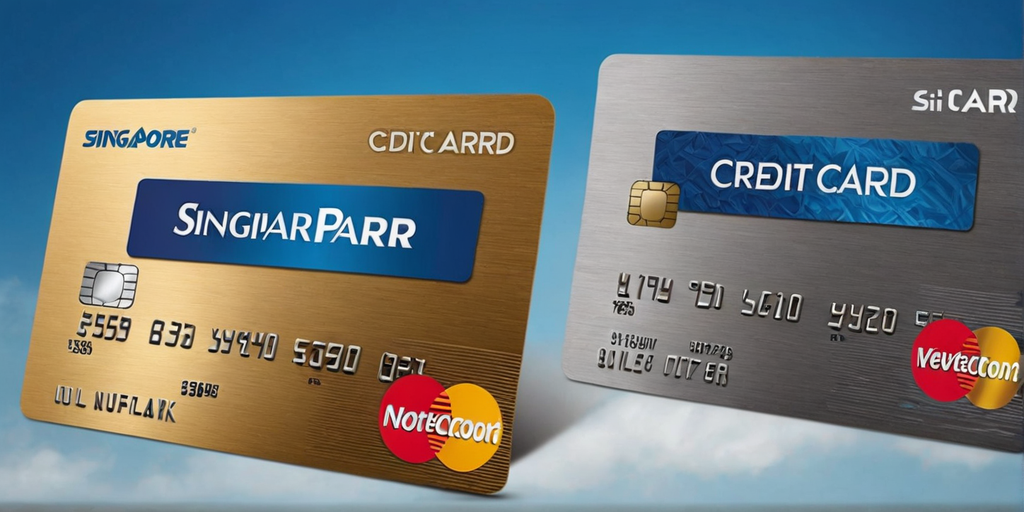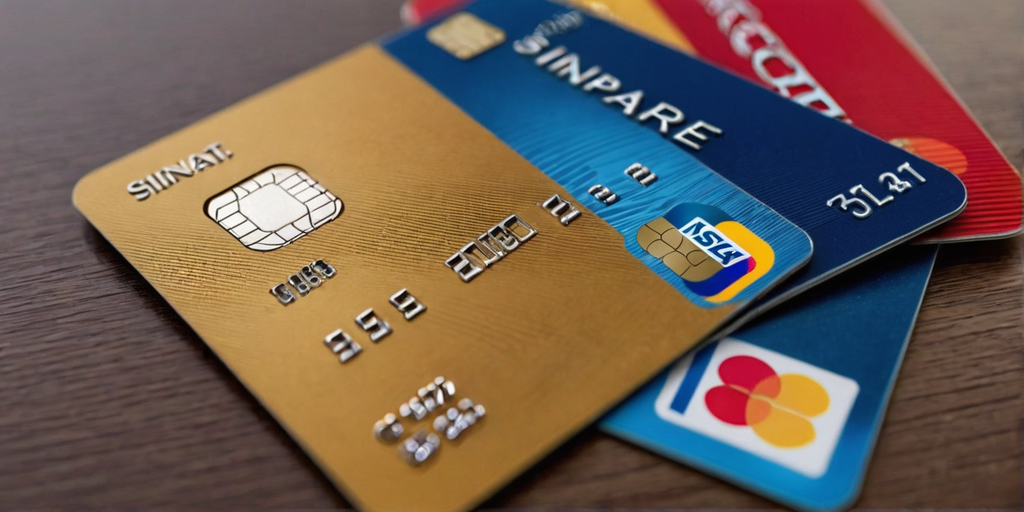Are you struggling to pay your credit card bills each month in Singapore? If so, you’re not alone. Many people find it challenging to keep up with their credit card payments, especially if they have multiple cards or high balances. However, paying your credit card bills on time is essential to maintaining a good credit score and avoiding late fees and interest charges. In this article, we’ll share some tips and strategies to help you pay your credit card bills each month and stay on top of your finances.

Understanding Your Credit Card Bill is the first step to paying it off each month. Your credit card bill will usually include a summary of your transactions for the month, the balance you owe, and the minimum payment due. It’s essential to review your credit card bill carefully to ensure that there are no errors or fraudulent charges. You should also pay attention to the interest rate and fees charged on your credit card, as these can add up quickly if you carry a balance.
Setting Up Payment Methods is the next step to ensure that you pay your credit card bills on time each month. Most banks in Singapore offer several payment options for credit card bills, including online banking, mobile banking, and automatic payments. You can choose the method that works best for you and set up reminders to ensure that you never miss a payment. You can also consider consolidating your credit card debt or transferring your balance to a card with a lower interest rate to help you pay it off faster.
Key Takeaways
- Understand your credit card bill to avoid errors and fraudulent charges.
- Set up payment methods and reminders to ensure that you pay your credit card bills on time.
- Consider consolidating your credit card debt or transferring your balance to a card with a lower interest rate to help you pay it off faster.
Understanding Your Credit Card Bill

If you have a credit card, you will receive a monthly billing statement. It is important to understand the components of your statement to avoid missing payments, paying unnecessary interest and late fees.
Components of a Credit Card Statement
Your credit card statement will contain the following components:
- Amount Due: This is the total amount you owe the bank for the month. It includes your outstanding balance, any new purchases, cash advances, fees, and interest charges.
- Due Date: This is the date by which you need to pay your credit card bill. Missing this date will result in late payment fees and a negative impact on your credit score.
- Minimum Payment: This is the minimum amount you need to pay to avoid late payment fees. However, paying only the minimum amount will result in high-interest charges and a longer time to pay off your credit card debt.
- Outstanding Balance: This is the amount you owe the bank from the previous month’s statement. It includes any unpaid balance, interest charges, and fees.
- Interest Rate: This is the rate at which the bank charges interest on your outstanding balance. It is important to note that interest rates can be different for different types of transactions, such as purchases, cash advances, and balance transfers.
Reading the Statement Correctly
To read your statement correctly, you should:
- Check the amount due and due date carefully and make sure you have enough funds to pay the bill.
- If you cannot pay the full amount, pay as much as you can to reduce the outstanding balance and avoid high-interest charges.
- Always pay more than the minimum payment to reduce your debt faster and save on interest charges.
- Look for any errors or fraudulent transactions and report them to the bank immediately.
Understanding your credit card statement is crucial to managing your finances effectively. By paying attention to the components of your statement and reading it correctly, you can avoid late fees, high-interest charges, and improve your credit score.
Setting Up Payment Methods

When it comes to paying your credit card bills in Singapore, there are several payment methods available to you. Here are some of the most common ways to pay your credit card bills:
Internet and Mobile Banking
Internet and mobile banking are convenient ways to pay your credit card bills. If you have an account with a bank like UOB, OCBC, DBS, Citibank, or Standard Chartered, you can log in to your account and make a payment using the “funds transfer” or “transfer now” feature. Simply select your credit card as the recipient and enter the amount you want to pay. This method is fast and secure, and you can do it from the comfort of your own home.
GIRO Arrangements
Setting up a GIRO arrangement with your bank is another convenient way to pay your credit card bills. With this method, your bank will automatically deduct the amount of your credit card bill from your account each month. To set up a GIRO arrangement, simply log in to your internet banking account and follow the instructions. Most banks in Singapore offer this service, including UOB, OCBC, DBS, Citibank, and Standard Chartered.
ATM Transfers
If you prefer to pay your credit card bills in person, you can do so at an ATM. Most banks in Singapore have ATMs that allow you to make transfers to your credit card account. Simply insert your ATM card, select the “funds transfer” option, and follow the instructions on the screen. This method is convenient if you need to make a payment outside of banking hours.
AXS Stations and Services
AXS stations and services are another convenient way to pay your credit card bills. AXS stations are located all over Singapore and allow you to make payments using cash, NETS, or your credit card. You can also make payments using the AXS mobile app or website. To make a payment, simply select “credit card bills” from the menu and follow the instructions on the screen. This method is fast and secure, and you can do it anytime, anywhere.
In conclusion, there are many ways to pay your credit card bills in Singapore. Whether you prefer to use internet banking, set up a GIRO arrangement, make an ATM transfer, or use an AXS station or service, there is a method that will work for you. Choose the method that is most convenient for you and start paying your credit card bills on time and in full.
Optimising Payment Timings

Scheduling Automatic Payments
When it comes to managing your credit card bills, setting up automatic payments can be a game-changer. By scheduling your payments to align with your salary or income, you can ensure that you never miss a due date. This method not only saves you time but also helps in avoiding late payment fees.
Utilising Calendar Reminders
Another effective way to stay on top of your credit card bills is by using calendar reminders. Marking your payment due dates on your calendar, whether physical or digital, can serve as a visual prompt to make timely payments. Additionally, setting reminders a few days before the due date can provide an extra layer of assurance, helping you to plan your finances effectively.
Managing Credit Card Usage

Using a credit card can be a great way to manage your expenses, but it’s important to use it responsibly. Here are some tips to help you manage your credit card usage:
Budgeting for Credit Card Payments
Before you start using your credit card, it’s important to create a budget that includes your credit card payments. This will help you avoid overspending and ensure that you can make your payments on time.
To create a budget, start by listing all of your monthly expenses, including your credit card payments. Then, subtract your expenses from your income to determine how much money you have left over each month. This is the amount you can afford to spend on your credit card.
Choosing the Right Credit Card
Choosing the right credit card can make a big difference in how much you pay in fees and interest, as well as the rewards you can earn. When choosing a credit card, consider the following factors:
- Interest rates: Look for a credit card with a low interest rate to help you save money on interest charges.
- Rewards: If you want to earn rewards on your credit card spending, look for a card that offers cash back or miles.
- Annual fees: Some credit cards charge an annual fee, so make sure to factor this into your budget.
- Credit score: Your credit score will affect your ability to qualify for certain credit cards, so make sure to check your score before applying.
One of the best credit cards in Singapore is the UOB One Card. It offers up to 5% cash back on all spending, as well as additional cash back on specific categories like groceries and petrol. To qualify for the maximum cash back, you’ll need to spend at least $2,000 per month on the card.
By following these tips and using your credit card responsibly, you can enjoy the benefits of credit card usage while avoiding the pitfalls.
Avoiding Common Pitfalls

Managing your credit card bills can be a daunting task, but it’s important to stay on top of them to avoid late payment consequences and penalties. Here are some tips to help you avoid common pitfalls:
Late Payment Consequences
Late payment of your credit card bill can result in a range of consequences, including late fees and interest charges. These fees can add up quickly and make it even harder to pay off your credit card balance. To avoid late payment consequences, make sure you pay your bill on time each month. You can set up automatic payments or reminders to help you stay on track.
Understanding Minimum Payments
It’s important to understand the minimum amount due on your credit card bill. This is the minimum payment required each month to keep your account in good standing. However, paying only the minimum amount due can result in high interest charges and a longer time to pay off your balance. It’s recommended to pay off your balance in full each month to avoid interest charges.
To summarise, make sure you pay your credit card bill on time each month to avoid late payment consequences and penalties. Understand the minimum amount due and aim to pay off your balance in full each month to avoid high interest charges. By following these tips, you can manage your credit card bills effectively and avoid common pitfalls.
Extra Tips for Paying Off Credit Card Debt

If you’re struggling with high credit card balances, don’t worry, you’re not alone. Here are some extra tips to help you pay off your credit card debt faster.
Dealing with High Balances
If you have a high balance on your credit card, it can be overwhelming to know where to start. One strategy is to focus on paying off the card with the highest interest rate first. This will help you save money in the long run by reducing the amount of interest you have to pay.
Another option is to consider taking out a personal loan to consolidate your credit card debt. This can be a good option if you have multiple credit cards with high balances and high interest rates. By consolidating your debt into one loan, you may be able to get a lower interest rate and a fixed repayment period.
Exploring Balance Transfer Options
If you have a high balance on your credit card and are struggling to pay it off, a balance transfer may be a good option. A balance transfer involves moving your credit card balance to a new card with a lower interest rate. This can help you save money on interest and pay off your debt faster.
Before you decide to do a balance transfer, make sure you read the terms and conditions carefully. Some balance transfer cards may have fees or a higher interest rate after the introductory period ends. You should also make sure you can pay off the balance before the introductory period ends to avoid paying a higher interest rate.
Remember, paying off your credit card debt takes time and effort. But with these tips, you can take control of your debt and work towards a debt-free future.
Advanced Payment Strategies

If you’re looking to take your credit card payment game to the next level, there are a few advanced strategies you can use to maximise your rewards and cashback. Here are two popular methods:
Leveraging Rewards and Cashback
Many credit cards in Singapore offer rewards such as miles or cashback for every dollar spent. If you use your credit card for all your expenses, you can rack up a significant amount of rewards over time.
To maximise your rewards, you should choose a credit card that offers rewards for the types of expenses you make most often. For example, if you spend a lot on dining out, you might want to choose a credit card that offers extra rewards for dining expenses.
It’s also important to keep track of your rewards and redeem them before they expire. Some credit cards have restrictions on when and how you can redeem your rewards, so make sure you understand the terms and conditions of your card.
Using Multiple Payment Channels
Another advanced payment strategy is to use multiple payment channels to pay your credit card bills. For example, you could use a UOB One account to earn higher interest rates on your savings, and then use the funds to pay off your credit card bills.
You could also use recurring bill payment to automate your credit card payments each month. This can help you avoid missing payments and incurring late fees.
Finally, consider using different payment methods for different expenses. For example, you might use your credit card for big-ticket items that offer rewards or cashback, and then use cash or a debit card for smaller expenses.
By using these advanced payment strategies, you can maximise your rewards and cashback while also staying on top of your credit card payments.
Frequently Asked Questions
What are the steps to set up a GIRO arrangement for effortless monthly credit card bill payments?
Setting up a GIRO arrangement is easy and convenient. All you need to do is log in to your bank’s online banking platform, navigate to the “GIRO” section, and fill in the necessary details. Once you’ve set up a GIRO arrangement, your credit card bill will be automatically deducted from your bank account on the due date each month.
Can I initiate a monthly interbank transfer to settle my credit card dues?
Yes, you can initiate a monthly interbank transfer to settle your credit card dues. However, you’ll need to ensure that you’ve added your credit card as a payee on your bank’s online banking platform, and that you’ve entered the correct credit card details. It’s important to note that interbank transfers may take up to 3 working days to clear, so make sure to initiate the transfer at least 3 days before your credit card due date.
What’s the process for automating my credit card payments through online banking platforms?
Automating your credit card payments through online banking platforms is a breeze. Simply log in to your bank’s online banking platform, navigate to the “credit card” section, and select the “auto-payment” option. From there, you can choose to pay the minimum amount due, the full amount due, or a fixed amount each month. Once you’ve set up auto-payment, your credit card bill will be automatically paid on the due date each month.
Is it possible to pay my credit card bill using a mobile banking app, and how can I do it?
Yes, it’s possible to pay your credit card bill using a mobile banking app. Simply download your bank’s mobile banking app, log in to your account, and navigate to the “credit card” section. From there, you can choose to make a one-time payment or set up auto-payment. It’s important to note that some banks may require you to set up a security token or biometric authentication before you can make a payment through the mobile banking app.
How can I ensure my credit card is paid off on time each month without manual intervention?
The best way to ensure your credit card is paid off on time each month without manual intervention is to set up a GIRO arrangement or auto-payment through your bank’s online banking platform. This way, your credit card bill will be automatically paid on the due date each month, without you having to lift a finger. Just make sure to keep enough funds in your bank account to cover the payment.
What options do I have for making direct monthly payments to a non-native bank credit card?
If you have a credit card from a non-native bank, you can still make direct monthly payments through your bank’s online banking platform or mobile banking app. Simply add your credit card as a payee, enter the correct credit card details, and make a one-time payment or set up auto-payment. It’s important to note that some banks may charge a fee for making payments to non-native bank credit cards, so make sure to check the fees before making a payment.

